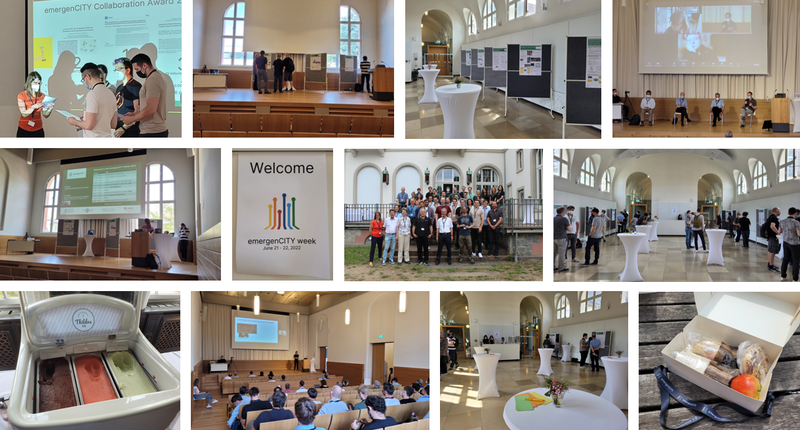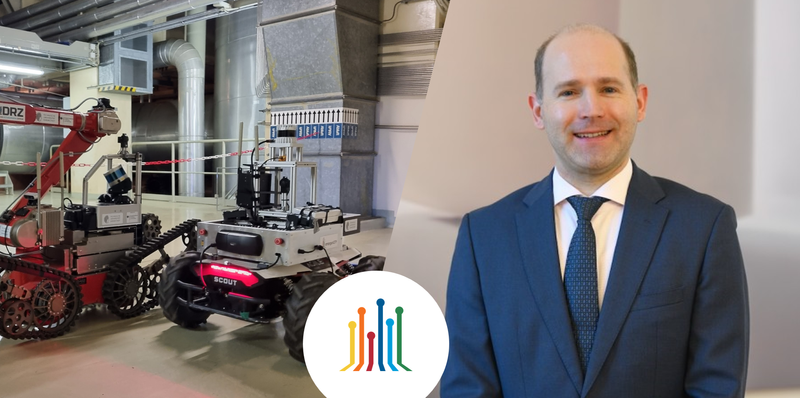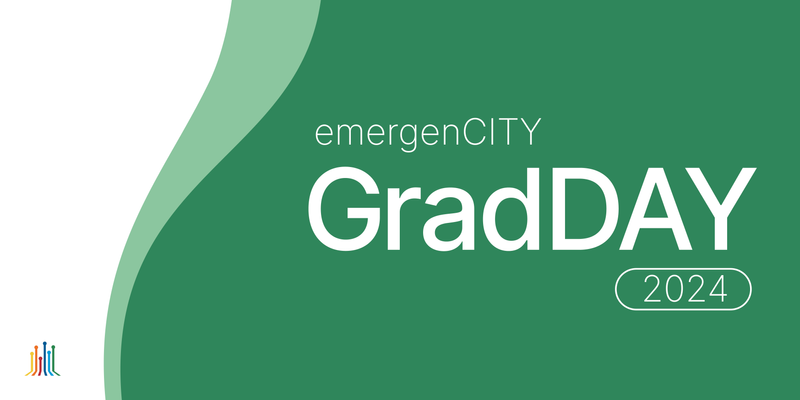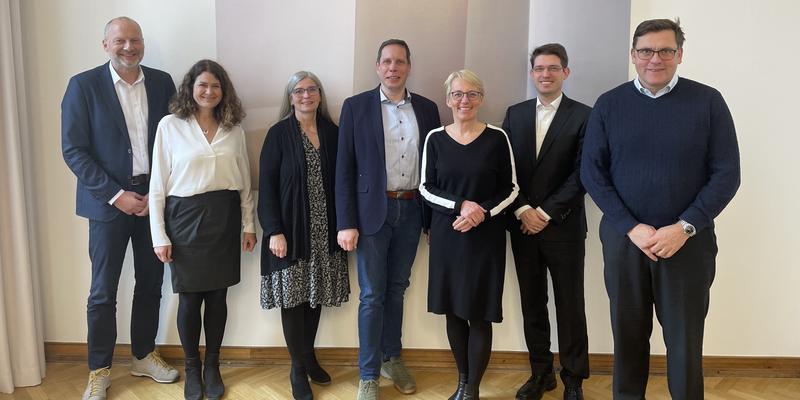Participatory workshops, distinguished lectures and inspiring discussions: During the emergenCITY Week 2022, the exchange between the disciplines represented at emergenCITY and the numerous projects took center stage. After two and a half years of research in the field of crisis security and resilience of digital cities, the LOEWE Center can already present a variety of developments and findings. In presentations and poster sessions, the program areas and cross-program area missions presented their work and also received some input for further research during the week. To advise on the further development of the research center, an Advisory Board consisting of experts in urban development and security research was also invited to provide valuable feedback. The many projects now need to be pushed forward and, in some cases, tested in the field. For example, a drone fleet, which can maintain a local communication network in the event of a crisis, is being tested on the Lichtwiese campus, and the future electricity-autonomous real laboratory eHUB is also nearing completion.
The interested public was also invited to many of the week’s events. Among them was the multi-day lecture series “Urban Resilience”, organized by the Department of Design and Urban Development under the leadership of emergenCITY professor Annette Rudolph-Cleff in collaboration with the international research program Designing Resilience Global. Renowned international speakers such as Herbert Dreiseitl and Kongjian Yu spoke on a wide range of topics related to resilient urban development. The topics included, for example, climate resilience and urban planning options in the face of flood hazards, “sponge cities” for which heavy rain is not a problem, new ways of storing CO² in cities, and, in concrete terms, how to cope with the flood disaster in the Ahr Valley. All against the background of the vision of a city that can contribute to the well-being and safety of the people living in it. The lecture series was also part of the international student competition “Designing Resilience Global,” in which seven universities from around the world participated. The winners have now been announced.
Another highlight was the workshop organized jointly with the Schader Foundation”Hybrid Threats to Critical Infrastructures”. Here, experts from security authorities, companies, infrastructure operators and research discussed the question: Extreme weather or cyber attack - what difference does it make with regards to precautions and danger prevention for digital infrastructures? Because with increasing digitization, technical problems or even cyberattacks on digitized infrastructures can lead to serious failures. According to the experts, both scenarios have the potential to paralyze critical infrastructures, i.e. the supply of electricity, water, gas or even communications. However, because very different reactions may be required depending on the hazard situation, it is important to create an awareness of the different hazard situations and to practice procedures for this. Nevertheless, IT security in particular has hardly been an issue in public procurement to date, the experts criticized. Therefore, the possibility of creating a kind of THW for the IT sector was also suggested: A network of volunteers who can provide support, for example, when PCs need to be reset.
The emergenCITY week ended with a social event, where the Principal Investigators Prof. Findeisen, Prof. Scheuermann, Prof. István, Prof. Schmalz, Prof. Gugenheimer, Dr. Muma and Dr. Zarembo, who joined the research center last fall, presented their research interests at emergenCITY. In addition, the emergenCITY Collaboration Award 2021 was awarded during the event and certificates were presented to the award winners. The award was given to outstanding interdisciplinary research work that had been done in the past year. The prize was awarded to a publication on the resilience of water distribution systems and two papers dealing with the improved monitoring of digital cities.



